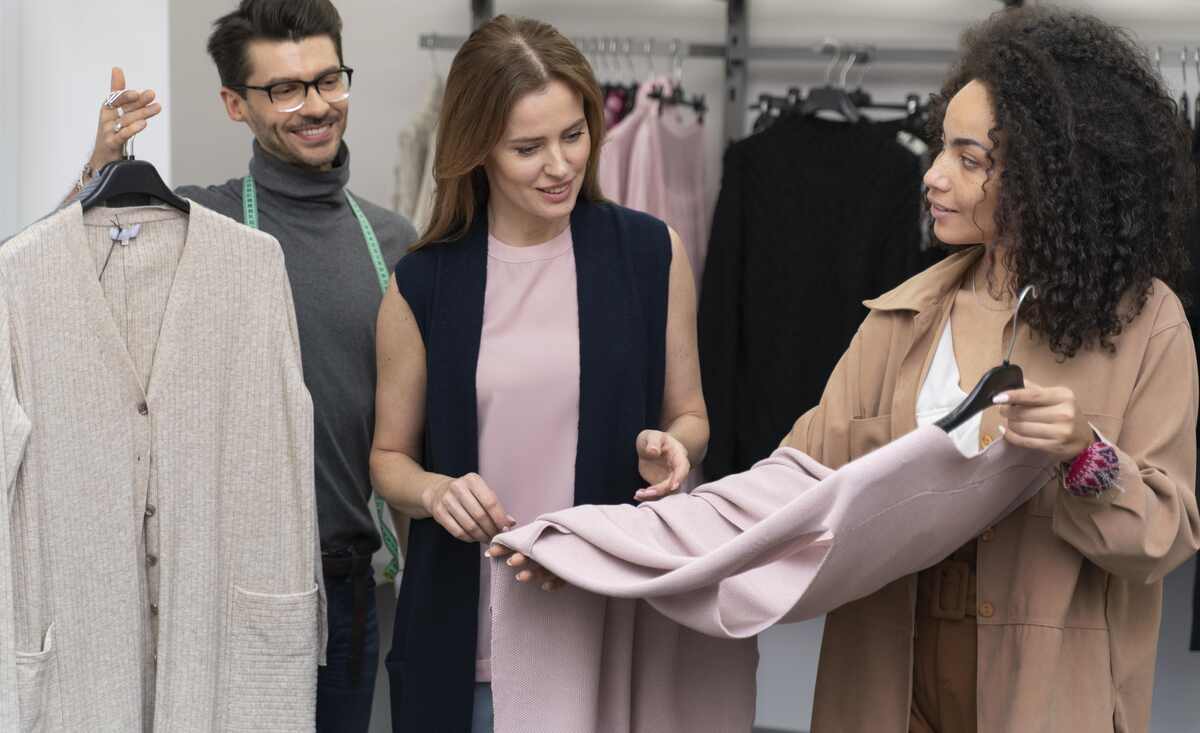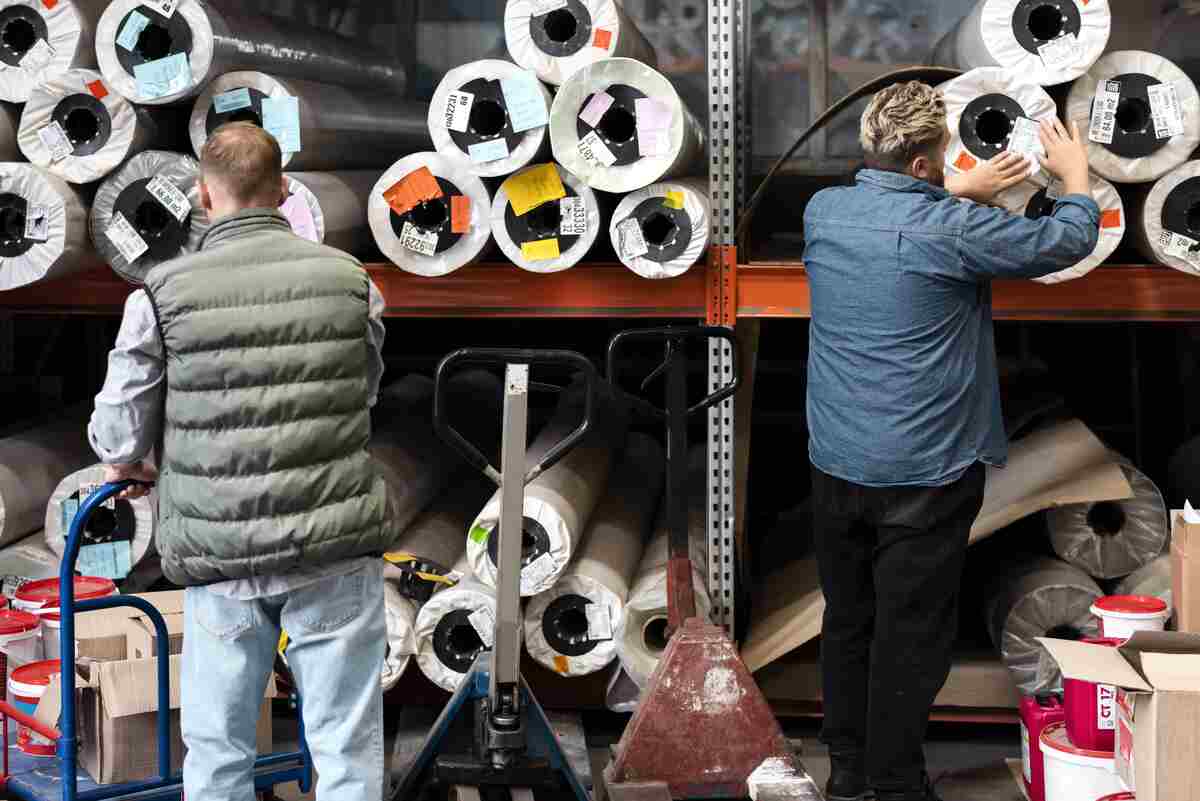Launching your clothing line is a thrilling yet challenging endeavor. Once you have meticulously crafted your designs and envisioned your brand, the next pivotal step is finding the proper clothing manufacturer to bring your dream to life. This decision can make or break your business, especially if you’re a startup with limited resources. Knowing what to look for in a manufacturing partner, how to manage the Clothing Manufacturers For Startups From Development To Production process, and balancing quality with cost are all vital components of building a successful apparel business.
How to Choose the Right Manufacturer for Your Clothing Startup
When selecting a manufacturer, it’s not just about price—it’s about finding a reliable partner who can meet your quality standards and work within your budget. The decision can be overwhelming with many global options, from local manufacturers to overseas facilities. Here’s what you should prioritize:

- Image By Freepik
Expertise and Capabilities
Not every manufacturer is created equal. Some specialize in specific clothing types or production techniques. It would help if you vet each manufacturer to ensure they have the skills and equipment to produce your garments precisely as you envision. This could include specific capabilities like screen printing, embroidery, or advanced sublimation techniques. Always ask for samples of their previous work and ensure their quality aligns with your brand’s vision.
Minimum Order Quantities (MOQs)
For startups, minimum order quantities can be a significant hurdle. Many manufacturers have high MOQs, which can tie up too much of your budget in inventory before you’ve even tested the market. Look for manufacturers that offer lower MOQs to start small & scale up as your brand grows. Some manufacturers are flexible with this, allowing you to negotiate based on your needs.
Domestic vs. Overseas Production
Deciding whether to produce your clothing domestically or overseas depends on your priorities. Domestic manufacturers typically offer better quality control and faster turnaround times, but this comes at a higher cost. Overseas manufacturers, especially in countries like China, India, and Vietnam, offer lower prices but can present challenges such as longer shipping times, language barriers, and quality inconsistencies. Carefully weigh the pros & cons of each before making a decision.
Building a Strong Partnership with Your Manufacturer
Your relationship with your manufacturer is more than just transactional—a partnership. The proper manufacturer can offer valuable input during the design and production stages, helping you avoid costly mistakes and ensuring your garments meet high-quality standards.
Tech Packs: Your Blueprint for Success
A tech pack is essential for translating your design into a production-ready garment. This document includes detailed sketches, measurements, fabric types, and specific instructions on constructing the garment. Manufacturers might misinterpret your vision without a detailed tech pack, leading to costly mistakes and revisions. Ensure that you work closely with your manufacturer to create comprehensive tech packs for each piece in your collection.
Customization and Branding Options
Private labeling and customization are crucial for building a unique brand identity. Whether it’s adding custom embroidery, branded labels, or screen-printed logos, these small details set your clothing apart from competitors. Many manufacturers offer private label services, so inquire about these options. A manufacturer with solid customization capabilities will allow you to develop a distinctive brand that resonates with customers.
Navigating Production and Managing Costs
Managing the production process requires careful planning. One of the most common mistakes startups make is underestimating the complexity and cost of clothing manufacturing. Production isn’t just about making clothes—it involves several stages, including fabric sourcing, pattern making, sampling, and final output.
Sourcing Fabrics Wisely
Your choice of fabric directly impacts your garments’ cost and quality. High-quality fabrics can elevate your designs but come at a premium. Conversely, cheaper fabrics may compromise durability and customer satisfaction. It’s crucial to strike a balance between fabric quality and cost. Consider working with a fabric supplier that offers sustainable options if eco-friendliness is a core part of your brand’s values. Attend trade shows and explore online fabric directories to find reputable suppliers.

- Image By Freepik
Lean Production for Efficiency
To minimize waste and lower production costs, consider adopting lean manufacturing principles. This approach focuses on reducing excess inventory, improving workflow efficiency, and ensuring that only necessary resources are used. Many modern manufacturers are already familiar with these principles, but discussing how they implement lean strategies during your initial conversations is essential.
Speeding Up Turnaround Times
Turnaround time is critical to staying competitive, especially if you plan to release seasonal collections or limited-edition drops. Look for manufacturers with proven track records of fast production times. However, faster doesn’t always mean better; ensure they don’t sacrifice quality for speed. Technology such as automated cutting machines or digital pattern-making can help improve both speed and precision during production.
Sustainable Manufacturing: A Growing Trend
As more consumers demand ethical and eco-friendly products, sustainable manufacturing is no longer optional for many startups—it’s essential. Partnering with a manufacturer that prioritizes sustainability can appeal to an environmentally conscious audience and reflect positively on your brand’s values.

- Image By Freepik
Green Materials and Ethical Production
Eco-friendly manufacturers often use sustainable fabrics like organic cotton, recycled polyester, or bamboo. They also adopt production processes that reduce water consumption, lower carbon emissions, and eliminate harmful chemicals. Additionally, ethical manufacturers ensure fair wages and safe working conditions for their employees. Choosing such a manufacturer aligns your brand with the growing global movement towards sustainability and social responsibility.
Budgeting for Success: Beyond Production Costs
While manufacturing costs are a significant expense, they aren’t the only ones to consider. Marketing, distribution, and shipping all factor into the final price of your garments. A comprehensive budget that accounts for all these variables will help you remain profitable.
Shipping Costs and Lead Times
Shipping is often an overlooked expense that can eat into your margins, especially when working with overseas manufacturers. The global supply chain is susceptible to delays, and higher shipping costs can significantly impact your bottom line. Be sure to factor in the shipping cost and any customs duties or tariffs that may apply.
Marketing and Distribution Expenses
Remember to budget for your marketing efforts. Whether social media advertising, influencer partnerships, or email campaigns, marketing is critical to driving sales for your clothing line. Additionally, distribution costs, including warehousing and fulfillment, must be accounted for when planning your finances.
Making Your Clothing Line Stand Out
Launching a successful clothing brand is about more than just designing beautiful garments. It requires a solid understanding of the manufacturing process, managing costs effectively, and the foresight to create a sustainable, scalable business model. By choosing the right manufacturing partner, optimizing your production process, and balancing quality with cost, you can build a brand that meets your creative vision and thrives in the competitive fashion industry.
Frequently Asked Questions (FAQs)
What factors should I consider when choosing a clothing manufacturer for my startup?
When selecting a clothing manufacturer, consider their experience in producing the type of garments you require, their capabilities (such as technology and equipment), minimum order quantities (MOQs), location (domestic vs. overseas), and the overall quality of their previous work. Customer reviews and the manufacturer’s willingness to communicate and collaborate should also be assessed.
How do minimum order quantities (MOQs) affect my startup?
MOQs refer to the smallest quantity a manufacturer is willing to produce in one order. MOQs can significantly impact your startup’s budget and inventory management. Choosing a manufacturer with flexible MOQs allows you to produce smaller batches and manage costs effectively, particularly if you're testing the market with new designs.
What is a tech pack, and why is it important in apparel manufacturing?
A tech pack is a comprehensive escort that includes all design details such as fabric choices, measurements, colors, and construction instructions. It acts as a blueprint for the manufacturer, ensuring that your garments are produced exactly to your specifications, reducing errors and ensuring consistency across production runs.
How can I balance quality & cost in the production process?
Balancing quality and cost involves sourcing high-quality materials at a reasonable price, evaluating production methods that reduce waste, and working with manufacturers that offer efficiency without compromising quality. Consider lean manufacturing techniques, strategic material sourcing, and negotiating competitive rates with suppliers to maintain a profitable margin without sacrificing garment quality.
What are benefits of partnering with an eco-friendly clothing manufacturer?
Eco-friendly manufacturers prioritize sustainability, use environmentally friendly materials, and maintain ethical labor practices. By aligning with an eco-conscious manufacturer, you not only contribute positively to the environment but also appeal to growing market of consumers who prioritize sustainability in fashion.














